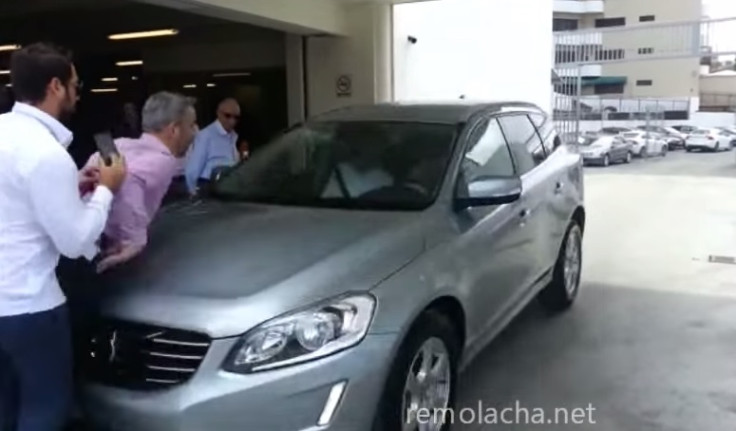Auto-braking Volvo crash video proves self-driving cars can't save us from our own stupidity

A Volvo XC60 equipped with self-driving and automatic braking features ploughed into spectators because the driver didn't realise pedestrian detection was an optional extra.
The car can identify objects and other vehicles in front of it, and apply the brakes to avoid a collision when travelling below 30 miles per hour, but this City Safety system does not include what Volvo calls a "pedestrian detection functionality," which is sold separately as a $3,000 (£1,900, €2,754) upgrade.
Filmed in the Dominican Republic, the video shows the car reverse, stop, then drive at the onlookers, before hitting two men and finally coming to a hault. The video, published by local gossip blog Remolacha, said the men were "left with some bruises" but were otherwise unhurt.
In response to the incident, Volvo spokesperson Johan Larsson told Fusion, a news website: "It seems they are trying to demonstrate pedestrian detection and auto-braking. Unfortunately, there were some issues in the way the test was conducted. The Volvo XC60 comes with City Safety as a standard feature. However, this does not include the pedestrian detection functionality... This is sold as a separate package."
'Never perform tests towards real humans'
However, even if the car had this feature installed, the pedestrians would still have been hit− because the driver in the video is accelerating, which overrides any intervention by the auto-braking system. Larsson added that Volvo "strongly recommends to never perform tests towards real humans."
This isn't the first time a Volvo car, famed for their safety, has crashed during a test of auto-braking features. A video uploaded to YouTube in 2010 shows an S80 equipped with Collision Warning and Auto-Brake crash into a parked truck in front of watching journalists.
As self-driving features become commonplace, manufacturers will have to educate drivers on what their cars can and cannot do − and incidents like these highlight just how far away we still are from the entirely autonomous futures predicted by the likes of Mercedes and Google, whose cars will eventually have no steering wheel or conventional controls at all.
© Copyright IBTimes 2025. All rights reserved.






















